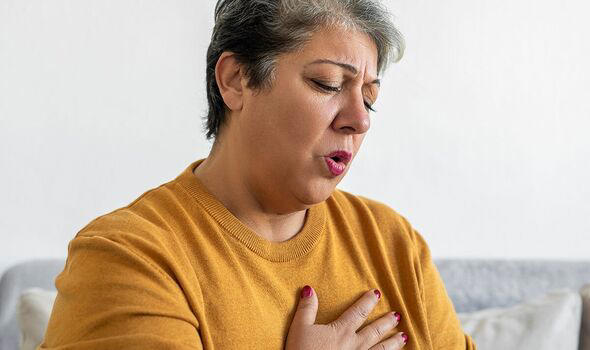Heart Attack Symptoms can vary widely among individuals. Understanding the body pains that may indicate a heart attack is crucial for early detection and response. Discover five key types of pain that might signal a heart attack.

© Provided by Reuters.
Heart Attack Symptoms
Heart attack symptoms are not always what we expect. While many people associate heart attacks with severe chest pain, symptoms can vary significantly from person to person. In fact, some individuals may experience mild discomfort, while others may not feel any pain at all. It’s essential to recognize these signs to seek medical help promptly. Below, we will explore five types of body pains that could indicate a heart attack.
1. Chest Pain
Chest pain is perhaps the most recognized symptom of a heart attack. When people describe this pain, they often use words like pressure, tightness, squeezing, or heaviness. This discomfort can occur in the center or on the left side of the chest.
Some people might mistake this pain for indigestion or heartburn, especially if it feels like an uncomfortable fullness. However, if it’s persistent or accompanied by other symptoms, don’t hesitate to get help.
2. Arm Pain
Arm pain is another potential warning sign of a heart attack. This discomfort can manifest in one or both arms and often radiates from the chest to the left arm. The pain can also extend to the shoulders, neck, and back.
Sometimes, individuals may experience a strange sensation, like numbness or tingling, in their arms. This symptom is especially concerning if it occurs alongside chest pain or other heart-related symptoms. Remember, your arms may be signaling something important, so don’t ignore it.
3. Throat and Jaw Pain
Pain that travels to the throat or jaw can also indicate a heart attack. This type of discomfort is less well-known but is just as significant. People often describe it as feeling like a toothache or having a choking sensation.
For some, this pain might increase during physical activity or emotional stress. If you notice persistent pain in your throat or jaw—especially when combined with chest or arm discomfort—it’s vital to seek medical advice.
4. Abdominal Pain
Another area to be aware of is your abdomen. Pain in the upper part of the belly can sometimes signify a heart attack. This discomfort can feel like aching, tightness, or pressure and may even be accompanied by nausea or vomiting.
Many people might confuse abdominal pain with gastrointestinal issues, such as indigestion. However, if this pain is unusual for you or occurs with other heart attack symptoms, it’s essential to get checked out.
5. No Pain at All
Interestingly, some heart attacks present with very mild or no pain at all. This condition, known as silent myocardial ischemia, affects about 10% of heart attack patients. It’s more common among specific groups, including diabetics, older adults, and individuals with nerve damage.
This lack of pain can make it challenging to recognize a heart attack. If you belong to these high-risk groups, it’s even more critical to be aware of other potential symptoms, such as fatigue, lightheadedness, or shortness of breath.
Recognizing the Signs
Understanding heart attack symptoms is vital for timely medical intervention. While some people may experience typical symptoms like severe chest pain, others may have atypical symptoms that can easily be overlooked.
It’s essential to listen to your body and take any unusual sensations seriously. If you experience any combination of the pains mentioned above, especially if they are severe or persistent, don’t hesitate to call for help.
Other Associated Symptoms
In addition to the pains discussed, there are other symptoms that may accompany a heart attack. These can include:
- Sweating: An unusual amount of sweating, especially if it occurs without physical exertion, can be a red flag.
- Dizziness: Feeling lightheaded or faint can indicate that your heart is not pumping effectively.
- Nausea: Many people report feeling nauseous or having an upset stomach during a heart attack.
Importance of Quick Action
If you or someone you know exhibits symptoms of a heart attack, it’s crucial to act quickly. Time is muscle, meaning that the faster you get medical attention, the better the chance of saving heart muscle from damage.
Conclusion
In summary, understanding heart attack symptoms can be life-saving. While chest pain is the most common sign, other types of discomfort, including arm, throat, jaw, and abdominal pain, should not be ignored. Furthermore, be aware that some individuals may experience no pain at all.
Being educated about these symptoms helps you respond appropriately. If you notice any signs of a heart attack, don’t delay in seeking medical attention. Your health is your most valuable asset, and recognizing these warning signs can make all the difference.
Related:
“Novavax Vaccine Trial Suspension: 5 Shocking Consequences!”



